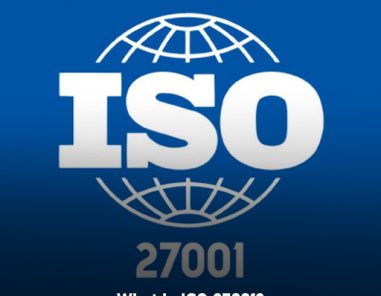
What is ISO 27001
The International Electrotechnical Commission (IEC) developed the ISO 27001 i...
Read MoreThe ISO 9001 standard is the leading standard for quality management. The ISO 9001 helps organisations control the quality of their processes through the implementation of a Quality Management System (QMS). This standard was last updated in 2015, and is commonly referred to as ISO 9001:2015. In order to become an internationally recognised standard, ISO 9001 had to be agreed upon by a majority of member countries before its update and official release.
This implies that the recommendations outlined in the standard are accepted by most countries worldwide. the ISO Council helps you to get familiar with the concept, importance and requirements of ISO 9001.

A Quality Management System (QMS) can be described as an amalgamation of business processes that focus on addressing customer needs on a consistent basis. Its goal is to ensure that every process is performed in a consistent manner utilising the same information, methods, skills and controls throughout its application.
A QMS is also defined as a formalised structure of documents, processes, procedures and responsibilities that organisations use to achieve their quality objectives. QMS is considered very important for organisations as it can provide a systematic approach to lean processes.
QMS can help organisations identify quality issues, eliminate unnecessary activities and close existing gaps in performance.
The purpose of a QMS is to provide a formal system of tools to the organisation, helping them acquire certification by an independent body.
As stated above, ISO 9001 is a globally recognised standard that helps companies create, implement and maintain a QMS for a company. The flexible nature of the QMS allows it to be utilised by organisations of any size or industry. The basis of the standard is to ensure that a system is created within the organisation that identifies, meets and improves customer needs.
As a consequence, customer satisfaction is enhanced. This is the reason why ISO 9001 is one of the more popular standards. Companies that wish to acquire this certification need to adhere to its requirements.
The structure of ISO 9001 is divided into ten clauses. The first three clauses contain the scope, normative references and definitions. The purpose is to introduce a user to the concept of quality management. The remaining clauses of ISO 9001 include:
This clause asks organisations to introspect and identify their internal and external issues and the expectations of interested parties. The scope of the QMS needs to be defined in addition to identifying relevant processes and how they interact with each other. The regulatory requirements also need to be outlined in this section.
This clause emphasises the need for top management to be instrumental in QMS implementation. Hence, this clause asks top management to demonstrate commitment to the QMS by defining and communicating quality policies. Additionally, roles and responsibilities related to QMS maintenance must be assigned throughout the organisation.

To maintain the ongoing function of the QMS, it is necessary to create a plan that addresses all aspects of QMS implementation. Hence, risks and opportunities related to the QMS within the organisation need to be assessed. Additionally, quality objectives should be identified and concrete yet practical plans should be made to accomplish these objectives.
This section focuses on the management of all resources related to QMS implementation. Monitoring and measuring resources, working environment, infrastructure and organisational knowledge are all examples of such resources. This clause also comprises of requirements for controlling documented information, communication, awareness and competence.
The operation clause focuses on all aspects of planning and creation of a product or a service. Product requirements review, planning, design control, control of external providers, product release and addressing nonconforming are examples of operations outlined in this section.
This clause includes the requirements that help organisations make sure that the functioning of their QMS is measurable. Monitoring and measuring recommendations, customer satisfaction assessments, internal audits and management review specifications are all included in this clause.
This clause contains the specifications and requirements that organisations can use to improve their QMS with time. Corrective actions, preventive actions and non-conformity assessment processes are all described within this section.

For an organisation to be ISO 9001 certified, they need to first finish their implementation. After completing the documentation and implementing the processes related to the QMS, organisations need to conduct an internal audit. The internal audit measures the efficiency of the QMS processes.
The goal of the internal audit is to ensure that all records confirm compliance of the processes.
Finding problems and weaknesses in the processes which may stay otherwise hidden is a significant advantage of internal audits. A formal review by the management has to be done to evaluate relevant facts about the management system processes that were uncovered in the internal audit.
Utilising these relevant facts, appropriate decisions should be taken, and appropriate resources should be assigned. Lastly, corrective actions should be taken to address the root cause of the identified problem.
The certification process is divided into two stages where in the documentation review, the auditors from the chosen certification body will ensure that the documents meet the requirements of ISO 9001. In the main audit in stage two, the certification body auditors will check whether the actual activities are compliant with ISO 9001.
ISO certification gives your organisation competitive edge. By helping you increase operational efficiency and overall product consistency, your business credibility and authority will soar to new heights.

Copyright © 2022 The ISO Council | Privacy Policy